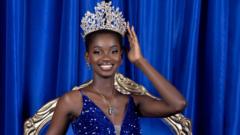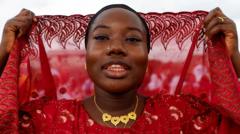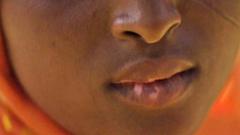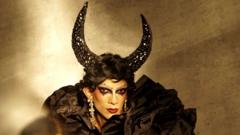The Miss Ivory Coast pageant introduces significant changes by banning wigs and extensions, aiming to encourage contestants to embrace their natural hair. This move has sparked debate regarding beauty standards, self-expression, and economic impacts within the local hair industry.
Embracing Natural Beauty: New Rules in Ivorian Beauty Pageants

Embracing Natural Beauty: New Rules in Ivorian Beauty Pageants
Ivory Coast's beauty pageant scene is undergoing a transformation as wig and extension bans aim to celebrate authenticity and promote natural beauty.
In a significant shift within the beauty pageant landscape, the Miss Ivory Coast competition has enacted new rules that focus on celebrating authentic feminine beauty by banning wigs, weaves, and extensions at the preliminary stages of the contest. Traditionally, Ivorian contestants have adhered closely to Western beauty ideals, often spending lavishly on artificial hairpieces to enhance their appearance. The transformation aligns with the growing influence of natural hair movements and challenges long-standing beauty norms.
Victor Yapobi, president of the Miss Ivory Coast organizing committee, explained that the aim of the ban was to promote "raw" beauty, encouraging participants to showcase their natural hair, which can include braids or straightened styles, as long as they are their own. "We want the candidates to be natural," he stated, highlighting a move away from cosmetic enhancements. This initiative mirrors a broader trend seen in pageants globally, where representations of beauty are beginning to diversify.
Recently, there have been notable examples worldwide where contestants have flaunted their natural hair. Angélique Angarni-Filopon, who was crowned Miss France last year at the age of 34, made headlines for her short Afro, challenging ageism and traditional beauty standards within the pageant world.
The changes in Miss Ivory Coast aim to create a more inclusive environment. In addition to the hair regulations, adjustments to entrance criteria include lowering the age limit and the participation fee to relieve financial pressures on contestants. Observing these initial phases, many participants have expressed relief and pride. One contestant remarked, “This rule gives me more pride as a woman - as an African woman.”
However, despite the positive feedback, the new regulations have sparked lively debates across Ivory Coast, given the popularity of wigs and extensions as fashionable expressions of creativity and style. Some contestants voiced their disappointment, interpreting the new rule as a limit on personal expression. “I love wigs,” admitted one competitor, although she later embraced her natural hair.
As the competition continues, concerns arise regarding the economic implications for the local hair industry, which boasts a market value exceeding $300 million annually. Hairdressers, such as Ange Sea in Daloa, fear the impact of this shift on their businesses. “This rule is not good for us,” she lamented, noting that many women prefer wigs for their versatility and appeal.
While the beauty norms presented by pageant organizers may influence Ivorian culture, many hope to strike a balance between individual expression and societal standards. This evolution may lead to wider acceptance of various beauty representations. Mr. Yapobi stated, “If it works, we’ll continue and carry on this initiative in the years to come,” indicating a willingness to redefine beauty in line with African heritage.
As the final competition approaches, the significance of winning with natural hair resonates deeply, symbolizing a reclamation of identity for contestants and the broader community. Doria Koré, crowned Miss Haut-Sassandra, emphasized this sentiment, asserting that the victory encapsulates the true beauty of African women. Ultimately, through this transformative pageant experience, many participants, including those who do not win, express a newfound confidence and pride in their authentic selves, indicative of a deeper cultural shift in the concept of beauty in Ivory Coast.
















